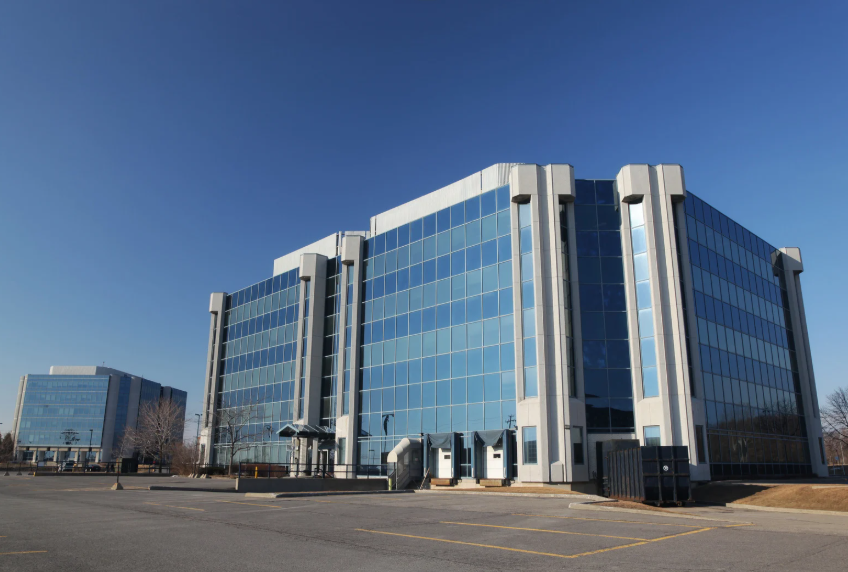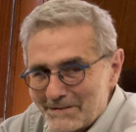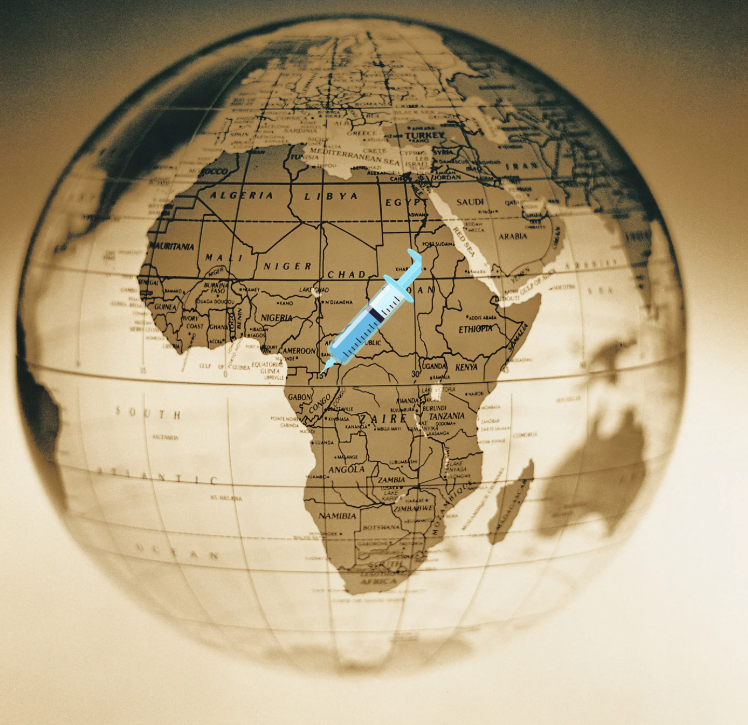Galenisys Newsletter : May 2025

Table of Contents
By Tony Dunford
Editor
-
PHARMA INVESTMENT. WHAT DOES IT TAKE?
By the Editor -
THE PROJECT MANAGERS NOTEBOOK part 10
The final article & summary on managing a pharma project.
By “Aubonne” -
KNOWING THE BUSINESS and GETTING INTO THE ESSENTIALS
By Bill Torpey -
ESTABLISHING AFRICAN VACCINE MANUFACTURING Part 2
By Richard van Duyse
“IT’S NOT CRICKET” ...
It's not cricket, but we should wave our bat in the air as we've reached the 50th edition of the GALENISYS newsletter!

PHARMA INVESTMENT. WHAT DOES IT TAKE?
By the Editor
In early April I was looking for somewhere to place my savings (which are meagre, I can assure you). Here in UK the tax year starts on the 6th of April, and then thrifty people are allowed to open (another) savings product the subsequent growth of which is tax free.
Given the economic outlook I opted for the safest product which is a cash account. The exercise set me wondering how many other people were doing just that. Not just in the UK, but citizens & Boardroom Directors as well.
“Money goes where it's treated best”
Decidedly the economic climate, is far from satisfactory right now.
The reason is obvious and much talked about... It's called uncertainty.

If you don't know where / how you can sell your pharmaceutical products in future years, you're not going to be able to choose the right territory in which to make investments in new R&D, production and distribution facilities.
Ireland has been much talked about with its with its 10% headline tax rate, which has attracted many international pharmaceutical companies over the years. But will resentment increase at this artificially low level compared with other developed territories?
If the US President has done anything at all of lasting impact, he has certainly boosted the case for governments pushing to “onshore” pharmaceutical facilities.
The Editor
THE PROJECT MANAGERS NOTEBOOK part 10
By Aubonne
In this final part of the series, which has been running in the Galenisys Newsletters, I'd like to leave you with a summary of key points that may be useful.
-
In your Work Breakdown Structure packages: BUY YOUR SCOPE …. NOT HIS OFFER.
-
For cost control you have got to have a strong a strict and disciplined procedure to handle scope changes.
In a nutshell: “No purchase order or variation order? >> No payment.
-
Beware cartels, they do exist. >> Spread the tender net wide in that case.
-
Projects are very vulnerable to adverse “PEST” factors. Think of the investment uncertainty caused by the current US Administration for example.
-
Performance = ability x motivation. Remember motivation. A good “booze up” does wonders.
-
Beware of Project Scope Creep.
-
IT and software projects are particularly difficult, given the relative lack of understanding in this fast-moving area, and talent shortage at both suppliers and clients. If in doubt, keep things simple.
-
Projects compromise between 3 key factors: SCOPE, DURATION & COST
-
Avoid gaps and overlaps in Scope & Responsibilities for the WBS Packages purchased; and in meeting decisions & responsibilities during the project. The Responsibility Matrix can be very useful.
-
Meeting management skills are important particularly where there are participants from different cultures.
Aubonne

In conclusion, I'd like to say that projects are unique, interesting, and can be highly satisfactory in that one achieves very tangible results and a wealth of experience.
ENJOY THEM!
Galenisys has a wide variety of experts experienced in project disciplines or management to advise on specific aspects, or across the project.
The Editor
KNOWING THE BUSINESS and GETTING INTO THE ESSENTIALS

By Bill Torpey
B.Sc in Applied Biology. 40 years’ experience in pharma & healthcare in various multinational & small companies as production manager working across the dosage forms. Recently he spent 8 years working with QA on validation.
I have worked in the pharmaceutical industry with many knowledgeable and skillful people, learnt a lot and enjoyed their company, and know that a Consultancy such as Galenisys can make a significant difference to the business performance if the Consultancy has the expertise and the experience that the client needs
An example I can recall was during a Technology Transfer Project to move the manufacture of over 45 solid dose products from 2 sites into a 3rd site.
The sanctioned Project Scope was to nearly double the capacity, by installing a third wet granulation suite, move the high-speed presses to enable gravity feed, add a larger capsule filling machine and upgrade the compression tooling store.
However, knowledge & experience of such processes enabled careful analysis of capacities, constraints, working practices, & established Procedures; to assess whether this investment aim could be achieved in accordance with the Quality Assurance requirements for a Technology Transfer Project. It must be said that this is not always easy to achieve, given that there are fears in the sites which are losing capacity of lost employment also, and therefore the cooperation of all key personnel cannot be assured.
The Consultancy showed that unfortunately the sanctioned project cash did not include money for the biggest bottleneck in doubling capacity (!), which was the final blending stage, equipment and rooms, plus associated Qualification costs. But importantly it was possible to alert Group Management before the project advanced too far.**
Choose a consultancy that has not just the skills and experience to understand the processes but is proactive, listens to your problems, helps you find the answers and supports you in the actions needed to overcome these challenges. Choose Galenisys.
Bill Torpey
ESTABLISHING AFRICAN VACCINE MANUFACTURING Part 2

By Richard van Duyse
Experienced international vaccine industry consultant. Specialized in project & operational management, facility design, start-ups, & technology transfers. Bachelor of Applied Science (B.Sc.).
In establishing the crucial vaccine facilities 5 other prerequisites are highly desirable in addition to those I mentioned in the Galenisys Newsletter article last month:
5 - Political and government support
-
Governments should develop policies, laws and regulations to support and protect vaccine industry investments.
-
Taxation (even subsidies) should be attractive to investors.
-
Local governments should prioritize the purchase of locally produced vaccines, if equivalent.
6 - The Market needs developing through:
-
Guaranteed Government demand via long term commitment to local producers.
-
African countries creating regional trading blocs thus enabling cross border/ open border trade.
-
Licenses: access to patents and licenses for innovative technologies
-
Market analysis: identify markets with a high demand of vaccines as the low and middle income countries and regions with support of UNICEF.
-
Reliable logistics partners for transport and storage
-
(If the vaccines are regulatory compliant), greater volume via exports will provide valuable revenue & economies of scale.
7 - Human capital
-
Clustering talent & investing in training for scientists, technicians and production workers, is essential; as is partnership with universities, & awareness of new technologies.
-
International cooperation via partnerships with foreign universities and research centers should train African talent.
8 - Sustainability
-
Environmentally friendly production involving sustainable production, responsible waste management and energy efficiency.
-
Long term vision for the long-term growth and continuity of the industry.
9 - Collaboration and partnerships
-
International support: Collaboration with multilateral organizations such as WHO, UNICEF, Africa CDC and the African Union.
-
Partnerships with pharmaceutical companies: Local players should collaborate with international vaccine developers for access to technology and knowledge.
In Summary, addressing the full range the “PEST” factors -- Political, Economic, Social and Technical - will be a prerequisite of success in Africa building a strong, self-reliant and resilient vaccine industry enabling the continent to meet its own needs.

Richard van Duyse
This week I listened to an interview on the World Service of the BBC with the Chief Executive of Amazon Web Services Europe. Tanuja Randery was discussing what is necessary for a faster uptake of AI in industry. And the key point she made about the slower uptake of AI in Europe Compared to the USA, was that although the technology and the vision were, present, there was a shortage of funding and human talent.
It struck me how this very much echoes two key points that Richard mentioned in his detailed article above - that there certainly is the vision for vaccines production in Africa, and also available technology; but that funding & trained talent are in short supply. Both of these shortages will be exacerbated by the abolition of USAID, which funded both projects and salaries in some African healthcare provision.
The Galenisys team of Arabic, English, & French members have already worked on more than a dozen pharma projects for WHO, Government, or private companies in Africa, and they can certainly help in the training of Human Resources.
The Editor





